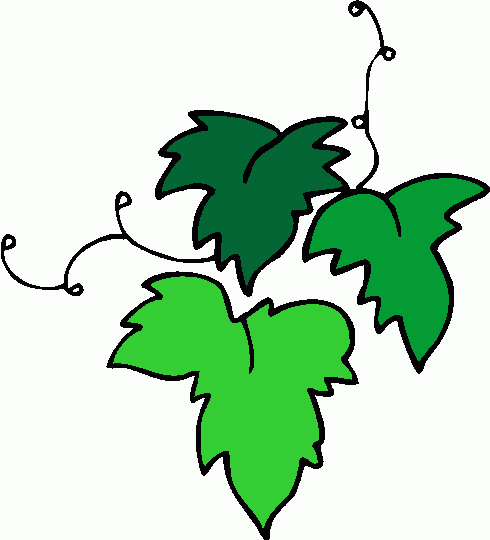Local Mum and holistic therapist Evi Achillea discusses the beneficial use of holistic treatments, through the use of herbs and aromatherapy, from ancient to modern times.
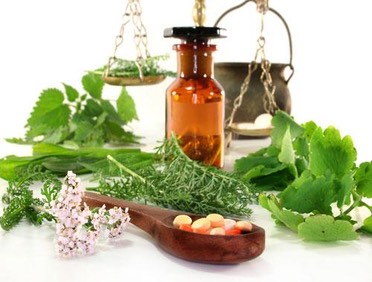
The term ‘holistic’ comes from the Greek word ‘holos’ meaning whole and is an ancient method of healing. Holistic therapy is defined as more of an approach rather than a treatment; it focuses on the person’s whole being – their physical, emotional, mental and spiritual wellness that needs to be addressed.
Holistic treatments look more into the lifestyle of the person and seek to identify the imbalances which may cause some negative effects to the person’s health. Holistic therapy focuses on the root cause of the disease and the goal is to eliminate the disease by encouraging the person to strive for wholeness and healthy living that clears the lymphatic drainage system and releases toxins from the body, as well as relieving mental and emotional stresses and tensions to restore natural balance. It recognises that illness and stress affects not only our physical but also our emotional, spiritual and mental well-being.
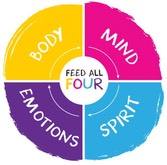
The root of all health is in the brain.
The trunk of it is in emotion.
The branches and leaves are the body.
The flower of health blooms when all parts work together.
The roots of aromatherapy can be trace back more than 3,500 years before the birth of Christ. All cultures are known to have used the aromatic properties for various reasons.
The bible records the use of essential oils for treating illness. The holy anointing oil that God directed Moses to make from ‘flowing' myrrh, sweet cinnamon, calamus, casia and olive oil would have been a powerful anti-viral and antibiotic substance, the use of which gave protection and treatment to those to whom it was administered.
The ancient Egyptians extracted essential oils by infusion and took personal hygiene seriously, as shown by the earliest recorded recipe for a body deodorant in the Papyrus Ebers of 1500 BC. The Egyptian priests used aromatic substances not only for embalming their pharaohs but also in their role as "psychiatrists" for treating manias, depression and nervousness. They recognised that burning certain aromatic substances offer protection against contagious diseases.
Jars of Frankincense and Styrax have been found in tombs dating from 3000 BC. When Tutankhamen's tomb was opened in 1992 the first smell that reached the noses of Howard Carter and his colleagues was the smell of "Kyphi”- which was made up of twenty-three aromatic herbs, spices and essential oils including Cedarwood, Frankincense and Myrrh. Aromatic herbs wood and spices were also burnt to honour their gods and oils were used to make cosmetics, medicine and perfumes.
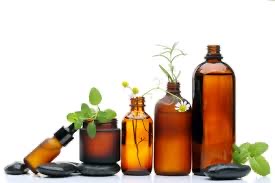
The ancient Greeks acquired their knowledge of essential oils from the Egyptians.
Herodotus (484 BCE- 420 BCE) was the first to record the use of distillation to get pure essential oil-around 425BCE. Asclepius was the earliest known Greek physician and around 1200BC combined the use of herbs and surgery. His skills and reputation led to him being deified after his death as the “god of healing."
Hippocrates (460BC-377 BC), known as the father of modern medicine (hence the Hippocratic Oath that doctors still take) said that 'the way to health is to have an aromatic bath and scented massage every day.' He wrote about the use of medicinal plants to treat illness and used aromatic fumigations to fight plagues. He was the first physician to dismiss the Egyptian belief that illness was caused by supernatural forces and he believed that the physician should try to discover natural explanations for the disease by observation and consideration of the symptoms. His treatments included massage with infusions, the internal use of herbs, baths and physical therapies. Surgery would only be used as a last resort and he regarded the entire body as an organism: "The Concept of Holism." Today Hippocrates is better known for the Hippocratic Oath that all newly qualified Doctors must swear allegiance to.
The father of pharmacology, Dioscorides ( 40-90AD), studied the habits of the plants and their healing properties and published his comprehensive work called 'De Materia Medica.' This was the first of its kind and contained over 1000 botanical medications.
Many other cultures used aromatherapy in their medicine and daily routines. The Persians made the next contribution to the knowledge of aromatics and medicine. Various Persian physicians wrote books describing the effects of various plants on the body. They have developed tools such as phials and flasks which were used in pharmacies until the early 20th century. They invented a primitive form of distillation to produce pure Essential oils and Floral Water.
Both China and India have a long history using plants and extracts in medicine. Ancient Chinese Knowledge of the effects of plants was incredibly advanced. This ancient system of healing can be traced back to 2500BC. A publication entitled 'PenTs'ao Kang-Mu' by Emperor Sen -Nung (3737-2697BC) records plants substances for medicinal use - Chinese Medicine - and Five Elements.
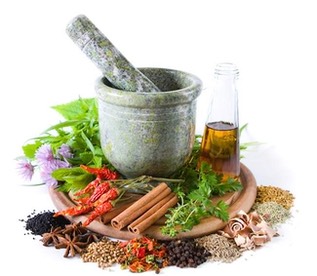
Meanwhile, in India, the Ayurvedic ( meaning life-knowledge) system of healing was developed.
The roots of this system date back 5000 years and the main principal is the balance within and without. The use of plants and spices are part of daily regime in Ayuverdic practise.
Over the next few hundred years fragrant plants and herbs became popular and the range of aromatic medicines increased. During the Great Plague, people protected themselves from infection by wearing garlands of herbs and covering floors with herbs and plants.
Benzoin, Styrax, Frankincense and various spices were used for burning in homes to try to keep the infection at bay. The survivors were those who worked in aromatics and perfumeries which is probably due to high levels of oils with antiseptic properties.
Among the many benefits holistic treatments have offered for many years, nowadays these therapies can help alleviate and enhance the following:
• Improvement of overall general health.
• Understanding the need for a well-balanced lifestyle.
• Awareness of keeping the environment safe and healthy.
• Quicker relief for pain
• Use of more natural resources and natural herbs and medicines.
• Application of more natural methods to cure illness such as proper nutrition, exercise, detoxification and other natural non-invasive treatments.
• The holistic treatments have also benefited pet care. Many pet owners are now interested in holistic ways in taking care of their pets. The practice of giving good nutritious foods to the pet, proper exercise, natural vitamin supplements and massage are recommended to keep pets healthy. Treatments like acupuncture is done instead of injections.
• The holistic treatment has benefited illnesses like ovarian cancer. Many women treated this way experience lesser pain, general improvement of health, reduced growth of cysts and even totally eliminating the cancer.
• Another benefit of holistic treatment is the improvement of eye health particularly those suffering from Glaucoma. This treatment focused on natural medicines combined with eye exercises, healthy eating habits, taking natural vitamin supplements and stress relieving exercises like yoga, meditation and self-relaxing exercises. It is believed that by applying the holistic treatments the prevention of eye disease would be more effective.
• Promoting relaxation, thus reducing the effects of stress and anxiety
• Inducing a deeper sleep and combats insomnia
• Increasing positive feelings, improving self esteem and inducing a sense of euphoria and well being.
Evi
Evi Achillea,
Handy Therapies
People will not always remember what you did or what you said but they will remember how you make them feel.

For more information or advice, please contact:
Evi Achillea
Owner
Handy Therapies
Tel: 07528337068
Email: evi73@hotmail.co.uk
www.handytherapies.co.uk
